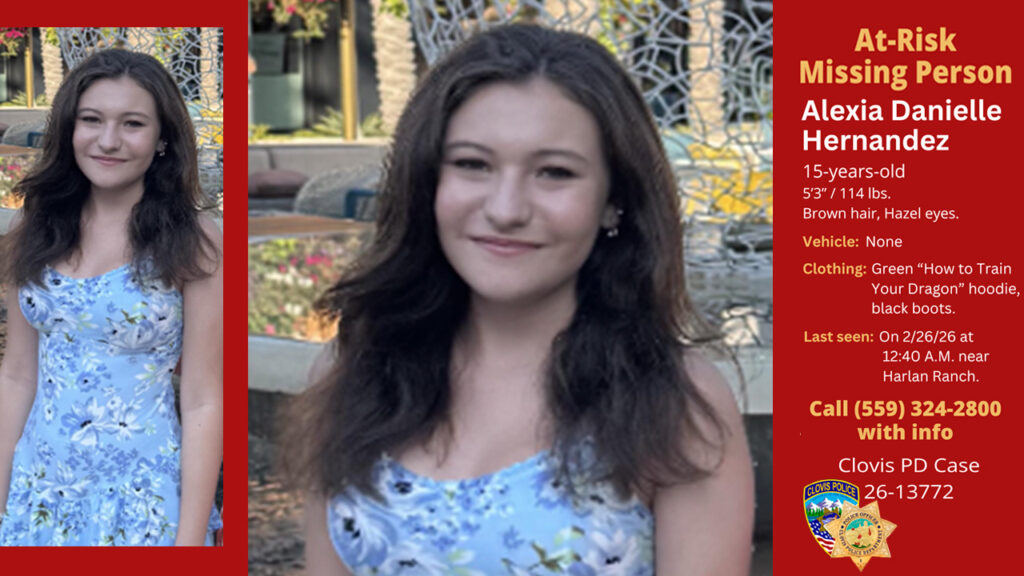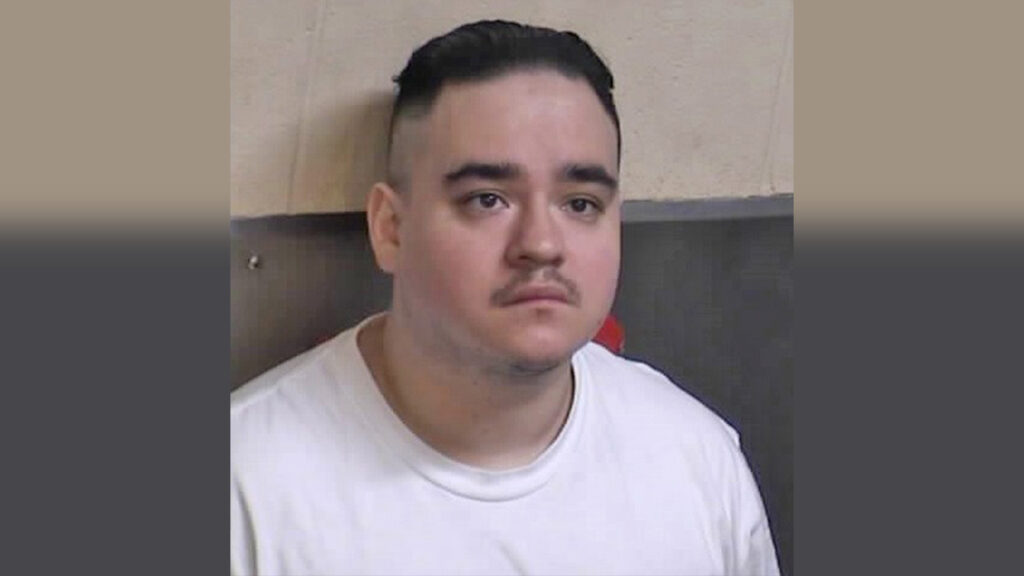Share
Is ValleyPBS in trouble?
Fears over the management of Fresno’s donor-supported educational TV station were raised in multiple media posts earlier this year by former station leaders and a longtime community adviser about a revolving door of CEOs, massive staff cuts, a lack of transparency, and an apparent skewing of local content toward the promotion of agri-business interests.
Questions also have been raised about possible conflicts of interest by the chairwoman of the nonprofit station’s board of directors and its new interim president/CEO, and whether the publicly funded operation is financially stable.
Phyllis Brotherton, formerly the station’s longtime chief financial officer, and Colin Dougherty, the station’s first general manager/CEO, both say they are greatly concerned.

“The whole station has been hijacked by ultra-conservative people with an agenda.” — former ValleyPBS CFO Phyllis Brotherton
“The whole station has been hijacked by ultra-conservative people with an agenda,” says Brotherton, who also served two stints as the station’s interim CEO. She retired in 2019 and left Fresno for her new home in Reno.
But current Channel 18 board members and its interim leader, filmmaker Jeff Aiello, say those fears are unfounded. Donations from the community are up, station officials say, and the budget is balanced. They argue that Aiello possesses expertise in television programming that his predecessors lacked and that a new administrative framework has been put in place to strengthen the station’s ongoing operations.
High Turnover of Leadership, Staff
But there’s no denying that there has been a great deal of turmoil in recent years, with the firing or resignation of three CEOs in the past four years, the departure of many longtime staffers in the same time frame, complaints filed with the Corporation for Public Broadcasting’s Office of the Inspector General, and an ever-shrinking board of trustees.
Conflicts of interest, biased programming and failing to keep public documents up to date would violate some of the federal rules and regulations under which the public television station is supposed to operate, experts say.
Among the most serious concerns is that the locally-produced ValleyPBS programming has been funded, in part, by a foundation or company controlled by the station’s board chairwoman Karen Musson and her family and produced by Aiello before he was named interim CEO/president in May.
In addition, financial and equal opportunity employment data, legally required to be included in the station’s public records, have either been filed late or are outdated on the ValleyPBS website. And while the board pledged in July to conduct a national search for a new CEO/president, the job wasn’t posted until Aug. 30 on the Corporation for Public Broadcasting’s national job board.
Aiello’s appointment was the catalyst for published commentaries by Brotherton, Dougherty, and longtime Community Advisory Board member Doug Morris, all urging closer scrutiny of the governance and operations of KVPT, and in particular, to the board’s selection of its next CEO/president.
Dougherty called on the board of trustees and Community Advisory Board to maintain the station’s “obligation to be fair and balanced in all of the programming aired.”
In his commentary, Morris noted that representation on the ValleyPBS Community Advisory Board has fallen below the specified target of 17 members drawn from the station’s seven-county viewing area stretching from Merced County to Kern County.
Morris called the revolving door of five different CEOs and interim CEOs in less than seven years an “unstable management phase” that he said has been “accompanied by an apparent slide of KVPT’s editorial objectivity. It now appears that the station largely serves commercial agribusiness interests. …”
He noted that the station’s management over its first three decades was overseen by just two people, Dougherty and Paula Castadio, now vice president for University Advancement at Fresno State.
‘Hallmark of PBS Content Is Editorial Integrity’
According to PBS Editorial Standards & Practices, “content distributed by PBS should reflect the highest standards of quality, demonstrate a rigorous commitment to editorial integrity unencumbered by commercial imperatives, and further society’s fundamental interest in informed civil discourse.
“The hallmark of PBS content is editorial integrity. PBS, member stations, and producers must always endeavor to shield the editorial process from political pressure or improper influence from content funders to maintain the highest level of trust.
“… PBS strives to meet the core goals set forth in the Public Broadcasting Act of 1967: … developing content that adheres to ‘objectivity and balance in all programs or series of programs of a controversial nature.’ ”
Complaints about biased programming are nothing new in public broadcasting, said Joel Kaplan, who served as the ombudsman for the Corporation for Public Broadcasting from 2011 to 2015 and who is an associate dean and professor at the Newhouse School of Public Communications at Syracuse University. Conservatives attempting to cut federal funding are usually are the ones doing the complaining, contending that programming skews too far to the left, he said.
“They tried to zero out the funding for CPB. It almost always came from criticism from the right about the left and that public broadcasting is very liberal and they don’t take the conservative point of view on anything. So it is kind of ironic, especially in California, that it would be the other way around,” Kaplan said.
ValleyPBS critics have pointed to “Tapped Out,” a four-part series on the Central Valley’s complicated water system that featured mostly farm industry representatives, and “American Grown: My Job Depends on Ag” as evidence that the station’s locally generated programming is tilted toward agribusiness.
Both were produced by Aiello’s production company, 18Thirty Entertainment, which has been paid hundreds of thousands of dollars in recent years by the station to produce content. As the interim president/CEO, Aiello’s job will include choosing the programs the station airs, and also producing some of them.
The intro to “Tapped Out,” voiced by Aiello, sets the tone for the series:
“This is California after a brutal five-year drought. Historic rains pounded the thirsty state in 2017 and left record snowpack in the Sierra mountains. You would think after such a crisis, where the governor signed emergency executive orders to restrict water use and pass new laws to regulate California’s dwindling groundwater reserves, that we’d be doing something, anything, to grab the bounty of water that fell on this parched state. But instead, millions of acre-feet of high-quality, fresh water was allowed to wash right out to sea. In just the first three months of 2017, enough water to fill Millerton Lake 60 times went right into California’s sprawling Delta and under the Golden Gate Bridge.”
(The intro fails to mention that the nearly record-setting winter storms of 2017 filled the drought-parched reservoirs beyond the brim and forced dam operators to open floodgates so the dams wouldn’t fail. Additionally, the Delta is a source of drinking water for millions of Californians and water for agriculture uses, and continual outflows of freshwater from California rivers such as the San Joaquin are critical to keep the Delta from becoming inundated with the ocean’s salt water.)
Water to Delta Not ‘Wasted’
Jody Graves, a Visalia walnut farmer who is vice chairman of the ValleyPBS board, said he doesn’t agree with the premise that water flowing down the San Joaquin River into the Delta is wasted.

“I think the station has and can and will continue to seek out those stories that need to be told. But I don’t think anybody is dominating the efforts of all these storytellers.” Jody Graves, ValleyPBS board vice chair
“I have no understanding of that argument,” he said. “I think that the water that serves the purposes of maintaining our environment is just as critical as water that grows our crops. And those uses can in times of scarcity bump heads. And that’s just the nature of things when there is a shortage.”
But Graves, who is slated to take over as board chair at the ValleyPBS board meeting on Thursday, disputes the assertion by Brotherton and others that the board has been controlled by agriculture interests: “That is a very loose cannon statement.”
He said the station’s agriculture-focused programming has tried to explore a “complicated” issue that viewers will observe through different lenses and reach different conclusions. And besides, Graves said, it’s not the only programming the station has produced.
“I think the station has and can and will continue to seek out those stories that need to be told,” he said. “But I don’t think anybody is dominating the efforts of all these storytellers.”
Who Paid for Ag-Focused Programming
Aiello told GV Wire that if he could redo the original “Tapped Out,” he would include more voices of environmentalists in the documentary mini-series. He said 18THIRTY stepped in to help complete the station’s struggling project that had been in the works for years. “Tapped Out” first aired in May 2017.
Production funding for “Tapped Out” was provided by the Meyers Farms Family Trust, a Mendota agribusiness.
Aiello also has produced two seasons of the Emmy-nominated “American Grown: My Job Depends on Ag” for ValleyPBS, with episodes that include “Why I Love to Farm,” “Women in Ag,” and “How My Job Depends on Ag Was Born.”
“My Job Depends on Ag” started as an advocacy Facebook page in 2015 and now boasts 96,000 members; the founders added a website as support and interest continued to grow.
The underwriters of “American Grown” include the Gar and Esther Tootelian Charitable Foundation headed by Musson and GAR Bennett, the agricultural services company headed by Musson and her family.
Station insiders say Musson was directly involved with Aiello on producing the series, a violation of Corporation for Public Broadcasting standards.
Despite multiple requests, Musson was not available this week for a follow-up interview. She is in her ninth year on the ValleyPBS board and will step down Thursday as board chair after four years. The board meeting starts at noon at the station’s headquarters in downtown Fresno. Because of the pandemic, the board will be meeting in person while the public may attend through a Zoom link that’s available by contacting the station.
In addition to the foundation and GAR Bennett, underwriters for the “American Grown” series have included Harris Farms, Brandt Inc., an agriculture services company, James G. Parker Insurance Associates, whose clients include agribusiness, and unWired Broadband, an internet service provider for rural areas.
Kaplan said the allegations being raised about ValleyPBS — board members underwriting programs, perceived bias in programs, a station CEO who is producing programming while being in charge of programming decisions — are the types of issues he would have reviewed as CPB’s ombudsman.
When programming is paid for primarily by agriculture interests and focuses on only one side of a story, “it’s very close to being propaganda as opposed to journalism,” Kaplan said.
Tim Gleason, a journalism and communications professor at the University of Oregon who is director of the Ancil Payne Award for Ethics in Journalism, said it may not be entirely surprising for agriculture to get a lot of attention in a region such as the Valley where it’s a major industry.
But complete disclosure of connections is important, Gleason said.
On-air underwriting announcements for “American Grown” name the companies but do not reveal board member connections. The station’s financial audits for 2019 and 2020 report donations to the station totaling $103,260 from the Gar and Esther Tootelian Charitable Foundation. The audit notes, “A Director of the Station is also President and Chief Executive Officer of the Gar and Esther Tootelian Charitable Foundation.”
The foundation’s IRS reporting form lists Musson as its president and CEO.
Linking an underwriting foundation to an unnamed board member in an audit footnote is “not transparency,” Gleason said — no one is likely to dig that deep to find it and then connect the dots.
“Transparency is the critical issue in this instance, even more so if you have board members who have a vested interest in the programming,” he said. “The second point is the degree to what the board of a public broadcasting station is involved in editorial decision-making. Generally speaking, boards do not engage in editorial decision-making, certainly not at the micro level.”
ValleyPBS has been the beneficiary of substantial funding from the Tootelian Foundation totaling $305,000 from 2012 through 2017, according to the website Grantmakers, a searchable database of federal Form 990 tax reports filed by nonprofits.
The foundation isn’t just bankrolling public television — it also has underwritten scholarships and other agriculture education efforts, including $300,000 over three years to Immanuel Schools of Reedley to fund an enriched curriculum for elementary students to learn about agriculture, math, science, and technology.
The school’s chief administrative officer is Andy Souza, who was named to the ValleyPBS board this summer. Souza is Fresno’s former city manager and former president/CEO of the Central California Food Bank.
Souza joined the board at a time when membership had plummeted to six active members. The station’s bylaws call for a 16-member board of trustees.
Building up Board Membership

“And it just got really hard when COVID hit, because we would talk to people on the phone and they would be interested and we would approve them and they might attend a meeting and then they would just disappear.” — Karen Musson, ValleyPBS board chair
Musson says it hasn’t been easy to recruit new board members, especially during the pandemic.
“We had three members term out at the end of 2019,” she said. “And during that time we were looking at bringing on new board members. And it just got really hard when COVID hit, because we would talk to people on the phone and they would be interested and we would approve them and they might attend a meeting and then they would just disappear.
“I don’t know if they were the wrong people, but I think for a lot of people, especially young people, a lot of these were young people with kids. They felt like their priorities needed to be someplace else. So it wasn’t about the convenience of it. It was about how their job had changed working from home. And they were also taking care of their kids.”
But keeping the board at full strength is one of the board’s many responsibilities, Dougherty said. His published commentary noted that the station’s smaller board was able to “dictate an agenda that is questionable.”
He agrees that it’s not easy to recruit board members — he sits on the board of the San Joaquin River Conservancy and also is serving on the Fresno County grand jury. “You have to go out and find people,” he said. “Quite frankly, it’s always a problem.”
According to the station’s tax reporting statements, board membership from 2009 through 2018 averaged about 11 but then dropped to eight in 2019 and to six in 2020.
But membership had never been so low as this year when it may have dropped as low as four, according to the minutes of the March 25 board meeting that recorded the presence of Musson, Graves, and board members Deborah Lagomarsino and James Shekoyan, with no board members marked as absent.
Choosing the Next CEO
Dougherty said he’s concerned that a board that is not robust and more representative of the region might make another poor selection for the station’s CEO. Since Phil Meyer, who came to KVPT in 2015 through a national search and left abruptly in 2017, “we’ve sort of plucked people out of left field,” Dougherty said.
Aiello, who has made it no secret that he wants to be named to the job permanently, acknowledged in an interview this summer with GV Wire that “we’ve had a couple of bad draft picks.”
Meyer was followed by former TV newswoman Jenny Toste, who headed the station for only seven months before she was fired in June 2019, and then by Lorenzo Rios, who departed abruptly at the end of April. The stated reason was that he wanted to refocus his time and attention as CEO of the Clovis Veterans Memorial District (a job he held simultaneously).
Musson said the ValleyPBS board opted not to conduct another search so soon after the one that resulted in Toste’s hiring, and obtained the blessing of PBS chief Paula Kerger to appoint Rios to the position.
“I told her we had an opportunity that one of our board members was interested in serving in a co-CEO position (while continuing to lead the Clovis Veterans Memorial District), and she said she thought that was a good move for the time being,” she said.
Kerger also was consulted on the board’s decision to appoint Aiello as interim CEO, Musson said.
“And I spoke to her recently when Lorenzo left, Jeff and I talked to her on the phone. She said, ‘It sounds like you have a great plan and keep me posted and let me know what I can do.’ ”
Kerger could not be reached for comment.
Rios, who declined to be interviewed but provided a written statement to GV Wire, said he remained the interim CEO until his departure in April. While also serving as vice chairman of the ValleyPBS board, Rios, along with Musson, had overseen the station’s operations after Toste’s departure until he was named interim CEO in November 2019.
It is a little unclear, however, exactly when Rios took on the role as interim CEO. An FCC broadcast license report that has to be filed every other year certified that Rios was both the interim CEO and the board’s vice chairman on Oct. 1, 2019 — more than a month before he was officially named to the role.
In the minutes of the Jan. 16, 2020 board meeting, Rios is still listed as the board’s vice chairman. In subsequent meeting minutes, he’s listed as the station’s president and CEO.
Musson said that the plan all along was for Rios to be on loan from the Clovis Veterans Memorial District, which had reduced its operations during the pandemic.
“I met with their board. They were agreeable. They made it very clear that it was going to be a temporary situation. And I think for the interim period of time, it worked out quite well,” she said.
But it’s unclear why the ValleyPBS board waited to start its search for a full-time CEO until it replaced one interim CEO (who had held the job anywhere from 17 to 22 months) with another interim CEO (Aiello).
Concerns over Possible Conflicts
A former board member who asked not to be identified said there were concerns about hiring Aiello as interim CEO since he had produced so much programming funded by Musson.
Others have questioned how Aiello will be able to separate his duties as station CEO from his work running his own production company.

“I’ve been in this community a long time. I just didn’t blow in here last night. And so folks know who I am and they respect my work. They know the company, 18THIRTY, and they now are excited that I’m in this role.” — Jeff Aiello, ValleyPBS interim CEO
But Aiello told GV Wire that he and the board made an agreement to clarify which productions are the station’s and which are 18THIRTY’s. Work that Aiello produces for the station will be compensated by his CEO salary, not as an independent contractor.
Aiello said he’s under a one-year contract as interim CEO. He won’t talk about his salary and compensation — even though it will be reported in a future federal tax form filed by the station — other than to say that he’s making less than Meyer made in the role.
According to the station’s federal tax reporting forms, Meyer was paid $126,139 in 2015, $126,861 in 2016, and $199,387 in 2017. Station sources said the compensation amount reported for Meyer’s last year included a severance payout.
Aiello said he and the station revised some existing contracts to eliminate any potential for conflict of interest and to eliminate co-production on “American Grown” and another 18THIRTY production, “Outside: Beyond the Lens.”
Under the prior production contract for “American Grown,” 18THIRTY obtained underwriting financing and handed over 25% to ValleyPBS. But under the new agreement 18THIRTY will keep 100% of the underwriting it raises, Aiello said. ValleyPBS can seek sponsorships for underwriting “spots” before and after the episodes separate from the underwriting credits that are part of the show itself, he said. Meanwhile, 18THIRTY has agreed to make a $20,000 donation from funds raised for “American Grown” in season 3 “because we still want to support the station.”
There’s a somewhat more complicated arrangement for the upcoming “Tapped Out 2” series. Under that contract, 18THIRTY and ValleyPBS will each be responsible for raising half of the show’s underwriting funding and will split the proceeds 50-50. 18THIRTY raised its 50% for the program’s production, and Aiello said it will now be his job as interim CEO to raise the remaining 50% — the station’s portion.
As for the station’s Creek Fire documentary that will be aired starting next week, the connection with 18THIRTY has been severed and it will be a ValleyPBS production, he said.
Taking on Fundraising Tasks
Some observers question whether Aiello will be as effective in raising funds for the station as he has been at fundraising for his company’s programming.
The revenue model for the station’s 2021-22 budget outlined at the board’s July meeting relies more heavily on production-related funding without increasing other kinds of fundraising, and production funding is sometimes staggered over years and has a low net return to the station, Brotherton said. As such, it “calls into question the sustainability of the organization,” she said.
Aiello said he understands his role as CEO will require him to generate financial support for the station. He said he expects to use the tools he developed while learning how to attract funding for program underwriting into generating support for the station.
“I’ve been in this community a long time. I just didn’t blow in here last night,” he said. “And so folks know who I am and they respect my work. They know the company, 18THIRTY, and they now are excited that I’m in this role.
“Fundraising, as you know, is all about relationships. And so that’s something that I have been building for a long time in this community. And I think that the community — if you sit down with me and you have a chance to visit like we’re doing now and you can hear the plan and you hear the excitement and you see it, I think it’s easy to understand that the fundraising part will work hand in glove with that.”
Memberships and donations are up, according to station officials. In July, chief operating officer Nancy Borjas reported to GV Wire that donor memberships totaled 10,443, an increase of 5% since July 2020. On-air fundraising campaigns — “where we get the majority of our new members” — exceeded the prior year by over $100,000 and was almost $70,000 higher than two years ago, she reported.
Rios, in his written statement to GV Wire, said that the pandemic was costly: “The team at Valley PBS lost 80% of its funding as it entered the COVID crisis because so many (station fundraising) events were in person, and subsequently, 60% of the staff yet turned around and increased production by 300%. Valley PBS was one of the only public television stations that produced original content during a challenging period that benefited our Central Valley community and California.”
Pledges, Underwriting Down
But the station’s financial picture was cloudy, even before the arrival of the COVID-19 pandemic in March 2020.
Membership today is about the same as in 2017 when the station reported 11,000 members.
The station’s audited financial statements for the 2017, 2018, and 2019 fiscal years report a nearly 5% drop in revenue from viewer pledges and major donors, and a 44% drop in underwriting revenue from businesses over the three-year period.
The station’s federal tax forms report that salaries and benefits were on the rise from the 2015 fiscal year to the 2018 fiscal year, but then dropped by more than $600,000 in the 2019 fiscal year.
Jobs that were formerly performed in-house — accounting, content scheduling (known as “traffic”), and others — had been outsourced.
On the revenue side, contributions and grants climbed steadily from $3.8 million in 2015 to $4.5 million in 2017, but then dropped to $3.9 million in 2018. Contributions and grants would have been even lower in the 2019 fiscal year that ended in June 2020 had the station not received half a million dollars in federal coronavirus stimulus money.

“The team at Valley PBS lost 80% of its funding as it entered the COVID crisis because so many (station fundraising) events were in person, and subsequently, 60% of the staff yet turned around and increased production by 300%.” — Lorenzo Rios, former ValleyPBS CEO
After the station’s payroll had been trimmed in early 2020 by layoffs, the station received Payroll Protection Program funding through the federal CARES Act and was awarded a $300,000 loan from the Bank of the Sierra in May 2020. The loan and interest were forgivable so long as the station used it for eligible purposes, including payroll, benefits, rents and utilities, and maintaining its payroll levels, the station’s audit reported.
The station also received a CARES Act grant of $200,000 through the Corporation for Public Broadcasting.
In the 2020-21 fiscal year the station received federal CARES Act money of $428,017 through CPB.
Without the infusion of federal funding over those two years, the station’s books would have been dripping in red ink, critics say.
The station’s 2021-22 budget, presented at the July 7 board meeting, projects a year-ending surplus of $88,659 in June 2022. But that surplus hinges on revenues of $582,500 for production, $1.6 million for “development,” and $480,000 for underwriting.
By comparison, the station’s audit for the 2019 fiscal year that ended in June 2020 reported $514,000 in production revenues, $1.5 million in pledges from individuals and major donors, and $180,773 for underwriting. The fiscal year 2020 audit is still pending but may be released at Thursday’s board meeting.
Violations of Bylaws, FCC Rules?
Concerns also have been raised over whether the station has been in violation of FCC and CPB regulations and its own bylaws.
Under the Equal Employment Opportunity requirements of the federal Communications Act, the Corporation for Public Broadcasting may withhold grant funding if a station fails to comply with EEO regulations; fails to submit an annual report identifying by race and gender the number of part-time and full-time employees; or fails to state the number of job openings and whether they were filled in accordance with regulations.
The federal Communications Act requires stations to certify annually to CPB that all job opening were filled in accordance with FCC regulations, or to provide a statement explain the reasons for each noncompliant hiring. Stations must provide the certification and related information in the Equal Employment Opportunity public file document that’s filed with the FCC.
Corporation for Public Broadcasting and Federal Communications Commission regulations require stations to “recruit widely” for all fulltime positions.
The station is required to document how it advertises and hires for open positions. But the FCC Equal Employment Opportunity report on the station’s website has not been updated since 2018, so it’s unclear how the station has been advertising for job openings. Meanwhile, the station’s diversity report posted on the website dates back to September 2017.
In some cases, there has been no job advertisement at all. For example, a May 7 station news release reported that Borjas was returning to the station in the newly created position of chief operating officer and would partner with Aiello in running the station.

Borjas, who started in the station’s development/membership office and over the years steadily rose through the ranks, had resigned as director of administrative operations in April to spend more time with her family, Musson told GV Wire.
But after Rios’ abrupt departure, she was back on the payroll after Musson recruited her for the new job.
The station’s new management structure — Aiello as interim president/CEO, Borjas as COO — is designed to allow Aiello to focus on generating programming and fundraising.
A complaint filed with the Corporation for Public Broadcasting’s Office of the Inspector General claimed that the station failed to publicly or internally post job openings when Rios created two new jobs, promoting Borjas to her former post as director of administrative operations and promoting Candis Campbell-Bazley for the other, executive administrative officer.
Helen Mollick, counsel to the Inspector General and assistant inspector general for investigations, confirmed to GV Wire that the Office of the Inspector General is aware of the published op-ed articles by Brotherton, Dougherty, and Morris. But Mollick said she could not comment on any complaints received or confirm whether the station’s management, operations, or governance is under investigation for noncompliance.
“If we initiate an audit, evaluation, or investigation, we do not make any public comments to either confirm or deny the existence of our work until it is completed,” Mollick wrote in an email. “At that time, there is a public release of information in the form of a final report or other public action. We do not comment on any ongoing work until it is completed.”
There have been other apparent violations. The board’s bylaws, the rules by which the board is supposed to operate, specify a governing body of 16 members: three from Fresno County, two each from Tulare and Kern counties, one each from Madera, Kings, and Merced counties, and six at-large. Yet only six, or possibly as few as four, have been serving this year.
The minutes of the Nov. 19, 2020 and March 25, 2021 board meetings each reported only four board members in attendance, and at the March meeting none were marked absent — which would seem to indicate the board had shrunk even further.
If there’s a silver lining to the critical commentaries and news stories, it’s in the renewed attention on board memberships, Aiello said. By early July, six people had asked for board member applications, including one from Mariposa County — “and we’ve never had one from Mariposa,” he said.
The bylaws also specify that the board must meet at least once per quarter. But the June 17 meeting was postponed to July 7 — the reason given was “due to illness” — so there was no second quarter meeting, a bylaw violation.
Stations must certify to the Corporation for Public Broadcasting and FCC that they are in compliance with open meetings, open financial records, maintaining a community advisory board, equal employment opportunity, and listing donors and political activities. If they are later found to be noncompliant, they could have to repay community service grants from the CPB and could be subject to a 10% penalty of any grant overpayment and fines of $5,000 per infraction. In drastic cases, the CPB can disqualify stations from receiving community service grants altogether.
There have been other shortfalls in ValleyPBS records. The 2018 federal tax form, known as Form 990, was not signed by Rios until 2020 — more than a year late.
Musson said that at that time the station’s financial files were in disarray and took a while to be sorted through before the form could be completed and filed with the IRS.
The 2019 Form 990, which covers the 2019-2020 fiscal year, was not posted until May 2021. It was signed by then-CFO Alana Gabrielson and may have been one of her final acts before leaving the station.
Gabrielson did not respond to a request for an interview.
Noncompliance Can Be Costly
Not being in compliance with posting diversity reports, equal employment opportunity requirements or other rules sound like mere technicalities, but noncompliance could jeopardize the station’s license, Brotherton said.
“Every year before you receive your Corporation for Public Broadcasting grant, what’s called a community service grant, the people in the station, including Karen as the chair, have to go in and certify that they are in compliance with all these things X, Y, Z, A, B, C.
“It’s a long list: Public announcement of a board meeting, board meetings open to the public, in compliance with the Communications Act of 1934, which addresses all these things about fair and objective programming, that the website is in compliance, which means a diversity report that has to be filed. The EEO report and compliance with the equal employment opportunity requirements,” Brotherton said.
“It’s not just CPB, it’s FCC. So to me, this station is at risk for losing its license would be the worst case scenario, but fines by the FCC if they determine they’re not following the rules.”
RELATED TOPICS:
Categories

Can You Help Clovis Police Find Missing 15-Year-Old Girl?

Detectives Nab Suspected Fresno Online Predator


















